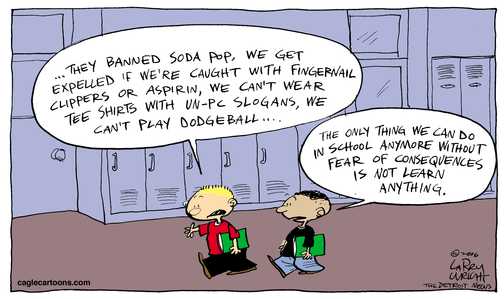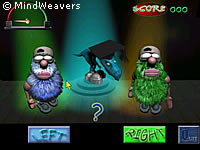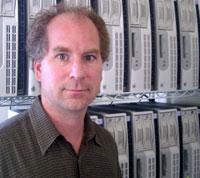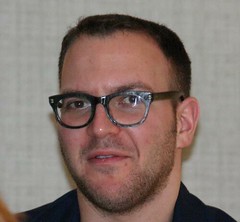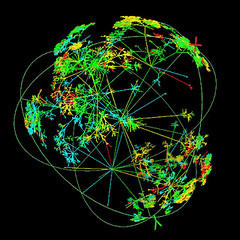Monday, October 27, 2008
Sunday, May 28, 2006
change of blog imminent
If you subscribe to this blog through RSS feed you might get to read this. But I don't think you'll receive it by visiting this blog at http://billkerr.blogspot.com/. But then, you won't know that I'm saying that, will you.
My advice to any blogger users reading this is to immediately backup your blog.
I did this successfully recently. The instructions are here and they worked for me.
I wrote to blogger support yesterday but given the nature of blogger (google free service) I'm not really expecting a response in the next 2 years. It's hard to "do no evil" when you have several billion customers who are all in a hurry.
I've enjoyed using blogger because you can tweak the HTML, unlike Wordpress.
Where will I go? Maybe to ourmedia. I like their philosophy a lot. But I'm still deciding. Catch you in cyberspace, somewhere...

Here's the mail:
My advice to any blogger users reading this is to immediately backup your blog.
I did this successfully recently. The instructions are here and they worked for me.
I wrote to blogger support yesterday but given the nature of blogger (google free service) I'm not really expecting a response in the next 2 years. It's hard to "do no evil" when you have several billion customers who are all in a hurry.
I've enjoyed using blogger because you can tweak the HTML, unlike Wordpress.
Where will I go? Maybe to ourmedia. I like their philosophy a lot. But I'm still deciding. Catch you in cyberspace, somewhere...

Here's the mail:
006 Please contact Blogger Support.blog/63/54/2/billkerr/index.html
My latest post (May 27) can be viewed from the specific post URL
http://billkerr.blogspot.com/2006/05/instructional-software-design-project.html
but it CAN'T be viewed at
http://billkerr.blogspot.com/
The most recent post that can be viewed there is an earlier one (May 17)
When I uploaded the post I received this error message:
getLinkByTarget("_blogview") has no properties
I get the same error message if I try again or even if I upload and then delete a test post
New posts are listed and can be edited on this screen:
http://www.blogger.com/posts.g?blogID=10936863
and they are fed through this RSS feed
http://billkerr.blogspot.com/atom.xml
when viewed through bloglines
(but I get an error when I paste the RSS URL directly into my browser)
I am using the latest version of firefox for browsing
any help would be much appreciated
thankyou,
Saturday, May 27, 2006
instructional software design project
I submitted the following article to the Australian Maths Teacher Journal in 1994 but it was rejected for publication. The note I received back said that my students hadn't really achieved much learning in Fractions.
I still think this was a very worthwhile Project and that the reviewer didn't take into account all of the meta-learning that happened. The approach used is still relevant today but it does require a high skill level for the teacher in a variety of areas - programming skills and managing a complex learning environment.
The article also includes a comprehensive explanation of the "instructional software design project" approach which was pioneered by Idit Harel and Seymour Papert and which still draws positive reviews today.
Anyway, the era of paper journals is over. I can publish what I want. You, the reader can ignore, critique or praise.
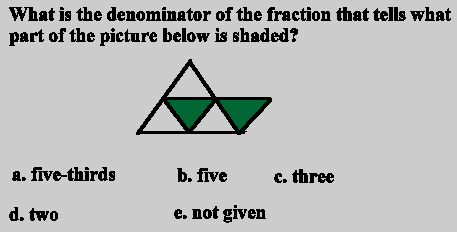
Education Software: Designed by Kids, for Kids
- link to full article written by Bill Kerr in 1994
Abstract
Students at the Year 8 level used LogoWriter software to design computer screens to teach Year 3/4 students Fractions. Students were set the task of doing transformations between words, symbols and pictures using LogoWriter. They recorded their experiences in a journal and identified problems they encountered and solutions to those problems. They helped each other solve problems in Fractions, design and computer programming.
Outcomes from this learning sequence included expressive writing about mathematics, improved scores in a Fraction test, improved fluency in Logo programming, improved self management skills, increased cognitive resilience (overcoming frustration and not giving up), improved time management, and increased faith by the students in their own thinking patterns. Students remained motivated and interested in the Fractions topic for a 7 week block using this approach. The culture of mathematics was perceived by the students to be different and more interesting than traditional textbook maths. Some students dropped in at recess and lunch to work on their projects.
The final combined software product is a useful piece of educational software that can be utilised by other teachers for diagnostic purposes as well as being an exemplar of what can be achieved with LogoWriter when it is used in this way.
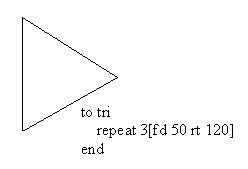
Conclusion
Teachers face the task everyday of how to make their subjects relevant and interesting to their students and this is seen to be a particular problem with maths. One way to look at this is from the point of view of objects to think with. The teacher and students co-construct a learning environment that is replete with "objects to think with". These "objects" include:
Harel and Papert (1990) argue that some materials are better with regard to the following criteria:
I still think this was a very worthwhile Project and that the reviewer didn't take into account all of the meta-learning that happened. The approach used is still relevant today but it does require a high skill level for the teacher in a variety of areas - programming skills and managing a complex learning environment.
The article also includes a comprehensive explanation of the "instructional software design project" approach which was pioneered by Idit Harel and Seymour Papert and which still draws positive reviews today.
Anyway, the era of paper journals is over. I can publish what I want. You, the reader can ignore, critique or praise.

Education Software: Designed by Kids, for Kids
- link to full article written by Bill Kerr in 1994
Abstract
Students at the Year 8 level used LogoWriter software to design computer screens to teach Year 3/4 students Fractions. Students were set the task of doing transformations between words, symbols and pictures using LogoWriter. They recorded their experiences in a journal and identified problems they encountered and solutions to those problems. They helped each other solve problems in Fractions, design and computer programming.
Outcomes from this learning sequence included expressive writing about mathematics, improved scores in a Fraction test, improved fluency in Logo programming, improved self management skills, increased cognitive resilience (overcoming frustration and not giving up), improved time management, and increased faith by the students in their own thinking patterns. Students remained motivated and interested in the Fractions topic for a 7 week block using this approach. The culture of mathematics was perceived by the students to be different and more interesting than traditional textbook maths. Some students dropped in at recess and lunch to work on their projects.
The final combined software product is a useful piece of educational software that can be utilised by other teachers for diagnostic purposes as well as being an exemplar of what can be achieved with LogoWriter when it is used in this way.

Conclusion
Teachers face the task everyday of how to make their subjects relevant and interesting to their students and this is seen to be a particular problem with maths. One way to look at this is from the point of view of objects to think with. The teacher and students co-construct a learning environment that is replete with "objects to think with". These "objects" include:
- The challenge of teaching others and designing screens for this purpose using Logowriter
- The structure of fractions and their transformations (words, symbols, pictures)
- Other students, eg. best friends, class experts, the Year 3/4 students
- Teacher (Is he/ she approachable, friendly and skilled?)
- Journal reflections
Harel and Papert (1990) argue that some materials are better with regard to the following criteria:
- appropriability (some things lend themselves better than others to being made one's own)
- evocativeness (some materials are more apt than others to precipitate personal thought)
- integration (some materials are better carriers of multiple meaning and multiple concepts)
Wednesday, May 17, 2006
probing naive understandings of computing concepts
Albert Einstein, when asked to describe radio, replied:
He writes:
WRT computing I also think it would be valuable from the perspective that some teachers seem to believe that their students know more than they do.
It's also an issue for me because of the new part of my job: teaching new arrivals, many from Africa, basic computing skills.
I've written a few entries to this wiki and have been following the interesting conversation between Paul and Tony Forster about whether or not immersion is the simple answer to this question.
Amongst other things, I raised the issue of file extensions, that they provide meaningful and important information and yet they are hidden by default in Windows systems. Once again there is interesting discussion about this topic.
I hope to see you at Paul's wiki.
"You see, wire telegraph is a kind of a very, very long cat. You pull his tail in New York and his head is meowing in Los Angeles. Do you understand this? And radio operates exactly the same way: you send signals here, they receive them there. The only difference is that there is no cat."Dr. Paul Chandler has created a wiki about probing naive understandings of computing concepts.
He writes:
Over the last couple of years, I've been turning an idea around in my mind; it's basically seeking to better understand "how students understand computing concepts". For those who might know of "children's science" in the area of science teaching, the idea is to apply the same sorts of ideas to the understanding of computing concepts (and yes, I am deliberately using 'computing' rather than IT or ICT). Another way to put it would be to 'probe the naïve understandings of computing'.This was of great interest to me because when I was a science teacher I used the New Zealand Unversity of Waikato Learning in Science Materials. They had developed whole units of work (electricity, force etc.) which would start by teasing out existing viewpoints held by children and build on that. I thought they were brilliant.
WRT computing I also think it would be valuable from the perspective that some teachers seem to believe that their students know more than they do.
It's also an issue for me because of the new part of my job: teaching new arrivals, many from Africa, basic computing skills.
I've written a few entries to this wiki and have been following the interesting conversation between Paul and Tony Forster about whether or not immersion is the simple answer to this question.
Amongst other things, I raised the issue of file extensions, that they provide meaningful and important information and yet they are hidden by default in Windows systems. Once again there is interesting discussion about this topic.
I hope to see you at Paul's wiki.
Tuesday, May 16, 2006
politically incorrect
This cartoon does cut the mustard.
I stuck it up at school and there was agreement that it was funny, except for one wry comment: "Not funny, it's too close to the bone"
I stuck it up at school and there was agreement that it was funny, except for one wry comment: "Not funny, it's too close to the bone"
google index size
Google used to publish their index size on their main page but stopped some time ago
However, you can still find out by this search: * *
The google index currently contains 25,270,000,000 pages
Informative article about google here
However, you can still find out by this search: * *
The google index currently contains 25,270,000,000 pages
Informative article about google here
censorware and fascism connection
Although we are opposed in theory to fascist dictatorships we treat our children AND TEACHERS at school in a similar way to which a fascist dictatorship treats its citizens, eg China

Great article on censorware by seth Finkelstein at http://blog.outer-court.com/archive/2006-05-15-n66.html

Great article on censorware by seth Finkelstein at http://blog.outer-court.com/archive/2006-05-15-n66.html
3. Censorware often blacklists language translation sites, as a LOOPHOLEand
Too much of the discussion about censorware takes place in terms of the misnomer “filtering”. That conjures up an image of removing evil, yucky, even toxic material, while leaving a purified result. The constant chant of “porn, pornography, harmful to minors, obscenity, child porn, pr0n, porno, PORN ...” often keeps issues framed in these terms. People sometimes gets the idea that censorware is intended to remove evil sites. No. It is designed to control what people are permitted to read. That is a very different problem. It implies that even if there was a perfect blacklist for sex or other prohibited material, censorware would still need to ban anonymity, privacy, language translation sites and more. Because all such sites, no matter how functional and useful they may be, have the capability to allow a reader to view any other site. They are a LOOPHOLE.
7. If censorware works for parents to control children in the US, it’ll work for governments to control citizens in e.g. China. Contrariwise, if censorware can’t work for governments to control citizens in e.g. China, it can’t work for parents to control children in the US.
Many discussions of censorware tend to revolve around statements of values, usually concerning which authorities have legitimate rights of control, in what contexts. Typically the values are that parents have a right to prohibit their children from reading certain materials, employers can control what employees view, but governments should not censor citizen’s ability to obtain information. However, the technical implications here are essentially identical, no matter what the social relationships.
So there’s a deep problem in efforts to bypass Internet censorship. If citizens can escape from government control, then children can escape from parent’s control. But if restricting information works on minors in the US, it’ll work on citizens under dictatorial governments. Either way, the results are problematic.
Wednesday, April 26, 2006
Brewster's dream
Brewster, would you like to share your dreams about Universal Access to Human Knowledge?
The whole audio presentation is very good. Brewster answers these questions clearly: Should we? Can we? May we? Will we? By taking the long term view of universal access to all knowledge as an achievable and worthy goal the problems raised by copyright law seem to become narrow and petty (my interpretation). There are a lot of questions at the end of the main presentation. Brewster Kahle is the founder of the internet archive.
When I grew up I felt that life was happening to me - I got to watch TV, I heard from teachers, I read textbooks ... the newspapers were written by someone other ... it felt like things happened to me
It was only when I got to a technical college that I found people in the front end of a field ... it was very exciting, invigorating ... people answering questions that hadn't been answered, rather than, "Do it right kid, or you'll get a B"
It was exciting when I was in a crypto class and the teacher said, "In this class you're going to learn all these things ... and then we have a bunch of unanswered questions ... if you have any ideas on these unanswered questions, here's my home number" ... that's exciting!
The opportunity we have with the net and it's already happening is making it so that more people feel like they're at the front edge, that they're seeing primary materials, that they can talk and interact with the real guys, that they're building and making something new, that they have something to say that matters ... that the world is theirs to play with and build on.
The key thing for us is to make it Read / Write. You can read or comment or make something new. You deserve to be in the library too.
The key to happiness for me is satisfaction and being satisfied comes from doing things for others, that I could tell what their reaction was. One of the cool things about this WAIS system was you put up these things and you started to see the usage logs ... people were coming in from other countries ... they cared about me ... it was like that ham radio experience ... where are you?
We started to share things, making it so more people are on the front edge ... they are able to draw from the past and make new things
The downside, the evil, awful, how could it go wrong is cable television or DRM, where it's all locked up. You're allowed to experience it ... entertainment and being a consumer ... this is SICK, I don't want to be a consumer, I don't want to be entertained. That's happening to me. I want to be able to build on and show off to my friends ... and that requires easing up and being able to play with stuff.
I think ideas come from the commons. They're exploited successfully by Companies as Marx said ... but I'm a card carrying capitalist and I've been fairly successful. But I do know the limitations of what we can do in the private sphere.
The public sphere is something we really have to nurture. When I was first at an internet conference after coming out with WAIS in 1991, I remember putting up my hand and saying, "I'm the token dot com in the room, I'm here to help people make money on the net". But NOW, I'm the token dot org in the room! It's gone so far the other way that we've forgotten that it really requires the commons ...
That's my dream and hope that my kids have a better life than I have
- extract from mp3, Universal Access to All Knowledge, Brewster Kahle, 1:10 - 1:14
The whole audio presentation is very good. Brewster answers these questions clearly: Should we? Can we? May we? Will we? By taking the long term view of universal access to all knowledge as an achievable and worthy goal the problems raised by copyright law seem to become narrow and petty (my interpretation). There are a lot of questions at the end of the main presentation. Brewster Kahle is the founder of the internet archive.
Tuesday, April 25, 2006
blogswana
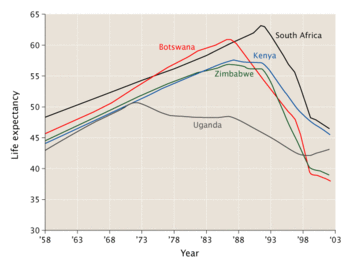
blogswana: Botswana, AIDS and Blogging
The initial blog entry (April 7, 2006) by Curt Hopkins and Brian Schwartz launching this project is inspirational and informative.
Curt Hopkins:
Blogging for Others ... develop a program in each country that would send people out to blog for people who could not do it themselves ...
... they would create a blog for someone, say a farmer in a remote village who had neither the money for the hardware, nor the expertise, nor perhaps the time or literacy, to blog himself, or to an urban prostitute, or a nurse in an AIDS hospice, or a politician, or a minister. They would go out, at least once a month, interview this person, maybe take photos, video or audio, return to their computer and blog for this person. They would take the comments and questions out to the person the next time they went out
... The one-year pilot project will work with a group of about 20 college students from one of the major universities, and provide them with blogging and journalism expertise and guidance. They would commit to a year of “blogging for others.” Each student participant would start their own blog, as well as a blog for their “partner” (the person for whom they will blog). Each partner would be someone who has been effected in some way by the AIDS virus...
... By blogging about a person first, the disease will be seen again, we hope, in terms of its human context. AIDS in Africa is, for many in the west, a combination of statistics and abstract tragedy ...
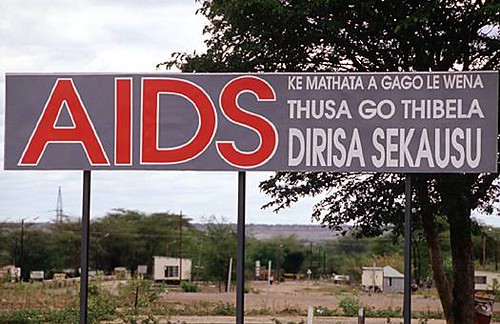
Brian Schartz:
...
It is our desire to create a rich, interesting site about the daily lives of Batswana. The public awareness and education campaigns are doing a great deal to make this problem a part of the national consciousness. Organizations such as the Botswana Network of People Living with HIV/AIDS (BONEPWA) are working to reduce discrimination against and the stigma attached to people living with aids. We would like to add to the public awareness and hopefully to help reduce the stigmatization of infected individuals.
My experience with Tswana culture leads me to believe that an approach that combined honesty with discretion could be quite effective. There are some things that are discussed in Tswana culture with a great deal of circumspection. For example, nobody ‘dies’ in Botwsana but people do ‘pass’. We want to raise public awareness discretely, we want risky behavior, decision to get tested, living with HIV/AIDS, etc. to be a part of these blogs but only insomuch as they relate to an individual with other concerns. We want the discrete language that the ordinary Batswana uses to be used in these blogs.
Being confronted with a world in which you either have it or you don’t (or you don’t know) must feel overwhelming to some people. We would like to create a blog site in which the reader is informed, not bludgeoned. We would like the blogs to be about the ordinary men and women of Botswana with the same concerns, hopes and dreams as the viewer. Some of these concerns will undoubtedly have to do with HIV/AIDS, but such concerns will not make up the entirety of the blogs. Reading about a sympathetic individual who is wrestling with an AIDS related issue may help the reader to come to terms with a similar issue themselves.
There is a saying in Setswana that I have adopted as part of my life. “Boiteko ke boikone.” Trying is success. I believe that our project could be part of the solution to this crisis that plagues Botswana. I believe that our efforts will, at the very least, get our 20 bloggers to consider more fully the HIV/AIDS problem in Botswana and their attitudes towards it.
Sunday, April 23, 2006
property versus ideas
When property meets ideas, which will prevail?
If nature has made any one thing less susceptible than all others of exclusive property, it is the action of the thinking power called an idea, which an individual may exclusively possess as long as he keeps it to himself; but the moment it is divulged, it forces itself into the possession of everyone, and the receiver cannot dispossess himself of it. Its peculiar character, too, is that no one possesses the less, because every other possesses the whole of it. He who receives an idea from me, receives instruction himself without lessening mine; as he who lights his taper at mine, receives light without darkening me. That ideas should freely spread from one to another over the globe, for the moral and mutual instruction of man, and improvement of his condition, seems to have been peculiarly and benevolently designed by nature, when she made them, like fire, expansible over all space, without lessening their density at any point, and like the air in which we breathe, move, and have our physical being, incapable of confinement or exclusive appropriation. Inventions then cannot, in nature, be a subject of property.
--Thomas Jefferson
quoted in The Economy of Ideas by John Perry Barlow
http://homes.eff.org/~barlow/EconomyOfIdeas.html
Saturday, April 22, 2006
cutting up a map
I've been working on cutting up a map of Africa into 54 pieces using GIMP tools, which I sort of know but not perfectly.
Initially it was slow going ... but I refined the technique wrote a GIMP tutorial about it today. I can use this as a classroom exercise in general and it might be a good way to teach African students GIMP techniques.
This is part of a wider project to make a game about Africa.
Initially it was slow going ... but I refined the technique wrote a GIMP tutorial about it today. I can use this as a classroom exercise in general and it might be a good way to teach African students GIMP techniques.
This is part of a wider project to make a game about Africa.
Thursday, April 20, 2006
the free future and the tortuous present

I'm a slow digital immigrant and Cory Doctorow is a very fast native / talker. He is a very powerful, articulate and rapid speaker. He went at 100mph with good jokes thrown in too. He spoke about Digital Rights Management - "what technology gives, technology takes away". The latest legal and technological moves and counter moves.
His general line was that DRM was a lousy business model because it criminalises the population, pisses off customers, does not work very well technically, is bad science (avoids critical scrutiny by legal means) and doesn't stop copying anyway.
But something was missing. He was stuck in the present talking about business model wars. That the copyfighters had a very bad model. That creative commons (release electronic copy for free at the same time as publishing hard copy for money) was a much better model.
After thinking about Cory's Melbourne talk my question for him is this:
You are a science fiction writer. You imagine futures in some detail. What you imagine about the future comes from somewhere. It comes from the present. You observe things in the present, pick up on some ideas and trends and exptrapolate those into the future. You write about futures where there is no material want, where immortality is a practical possibility and the main human struggle centres around reputation (wuffie). Your future has wings. Call this State B.
You are an EFF (Electronic Frontier Foundation) and DRM (Digital Rights Management) activist. This situates you very much in the present and you are aware in exquisite detail of the legal and technical situation of the current intense battle between those who want freedom and those who stand for reaction. This is a tortuous and painful nitty gritty struggle of attrition. The present is a grind. Call this state A.
How are we going to get from State A to State B?
Africa puzzle game
Africa Puzzle game by Chris Hoges. You start with a map of Africa showing the country names. Then when you click a button some of the countries are removed off the map and you have to put them back correctly
There are 5 levels of difficulty: variables are the number of countries removed from the map, whether the names are shown on the countries or not and whether a template showing the shape of the countries is shown or not
easiest - names shown, template shown, only a few countries removed from map
easy - names shown, template shown, more countries removed from map
medium - names shown, template shown, all countries removed from map
hard - names shown, template not shown, all countries removed from map
hardest - names not shown, template not shown, all countries removed from map
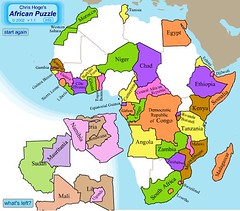
The screenshot shows an easiest level game: names shown, template shown, only a few countries removed from the map
I really like this game because the different levels allow you to gradually learn the names, shape and location of the countries.
There are 5 levels of difficulty: variables are the number of countries removed from the map, whether the names are shown on the countries or not and whether a template showing the shape of the countries is shown or not
easiest - names shown, template shown, only a few countries removed from map
easy - names shown, template shown, more countries removed from map
medium - names shown, template shown, all countries removed from map
hard - names shown, template not shown, all countries removed from map
hardest - names not shown, template not shown, all countries removed from map

The screenshot shows an easiest level game: names shown, template shown, only a few countries removed from the map
I really like this game because the different levels allow you to gradually learn the names, shape and location of the countries.
Wednesday, April 19, 2006
the wealth of networks
The Wealth of Networks (html version) is a new book by Yochai Benkler, a Professor of Law at Yale Law School. HTML repository is here.
I have great admiration for Lawrence Lessig for his prolonged campaign to help build a free culture and he has given this book a tremendous rap:
This is — by far — the most important and powerful book written in the fields that matter most to me in the last ten years. If there is one book you read this year, it should be this. The book has a wiki; it can be downloaded as a pdf for free under a Creative Commons license; or it can be bought at places like Amazon.
Read it. Understand it. You are not serious about these issues — on either side of these debates — unless you have read this book.
The debate has already begun about the book at Lessig's blog.
Seth Finkelstein says it is written in academic language and deconstructs and parodies the language and message, "a little mouse can be heard if a big elephant trumpets him"
Lessig concedes that it is an academic work but says it is well worth the effort for its contribution to an important debate which spans law, economics and social theory.
Seth continues his critique of the standard blog evangelism in the book, that blogging does marginally improve democracy but the z-listers are fooling themselves and shouting in the wind. He follows up with, "punditry is not democracy" and that "Popularity Data-Mining Businesses Are Not A Model For Civil Society"
3blindmice accuse Benkler of merging the distinction between information production and information distribution and argue that copyright remains necessary for information distribution.In one entry they accuse Benkler of marxist kum-bah-yah, the tyranny of mob rule and marshall mcluhan reasoning.
ACS argues that the internet has created an environment where a mixture of pleasure and altruism generates the "survival of the most popular" and this is not as good as our present regime of "survival of the fittest" created by a disciplined commercial approach.
So will I get the book? I think I must. Despite and because of the discontents at his blog, the Lessig endorsement is still good enough for me, although I am a bit put off by the academic nature of the work. 3blindmice and ACS strike me as too clever by half conservatives not willing to contemplate a radical transformation of society. Seth Finkelstein is much more interesting (prodigious anti censorware work and essays) and so I plan to study some of his work too. Here is an interview with Seth and here is his blog.
The first paragraph of the final Part 3 of Benkler's book:
Part 3: Policies of Freedom at a Moment of Transformation
Part I of this book offers a descriptive, progressive account of emerging patterns of nonmarket individual and cooperative social behavior, and an analysis of why these patterns are internally sustainable and increase information economy productivity. Part II combines descriptive and normative analysis to claim that these emerging practices offer defined improvements in autonomy, democratic discourse, cultural creation, and justice. I have noted periodically, however, that the descriptions of emerging social practices and the analysis of their potential by no means imply that these changes will necessarily become stable or provide the benefits I ascribe them. They are not a deterministic consequence of the adoption of networked computers as core tools of information production and exchange. There is no inevitable historical force that drives the technological-economic moment toward an open, diverse, liberal equilibrium. If the transformation I describe actually generalizes and stabilizes, it could lead to substantial redistribution of power and money. The twentieth-century industrial producers of information, culture, and communications—like Hollywood, the recording industry, and some of the telecommunications giants—stand to lose much. The winners would be a combination of the widely diffuse population of individuals around the globe and the firms or other toolmakers and platform providers who supply these newly capable individuals with the context for participating in the networked information economy. None of the industrial giants of yore are taking this threat lying down. Technology will not overcome their resistance through an insurmountable progressive impulse of history. The reorganization of production and the advances it can bring in freedom and justice will emerge only as a result of social practices and political actions that successfully resist efforts to regulate the emergence of the networked information economy in order to minimize its impact on the incumbents.
- http://www.benkler.org/wealth_of_networks/Benkler_Final_Usable_Text.html
which wiki?
http://www.wikimatrix.org/ offers a useful service by which you can choose and compare the wikis on offer. There are 45 wikis to choose from on their sidebar.
They have a choice wizard, which I used to obtain a short list. The choice issues raised by the wizard were:
I chose Yes. This was a very easy decision for me since I wanted a publicly editable wiki.
I chose Yes, since I wanted to make things as easy as possible for non-tech savvy users.
I chose hosted. I don't have access to my own server and I'm not a techie (confession) so I prefer the convenience of a hosted service.
I chose No because I'm looking for something that school students can also use.
I chose No. Although I like css and setting up a new look might be important in the future this is not a big consideration for me at this stage.
This process narrowed down my choice to CentralDesktop, JotSpot, Socialtext, StikiPad and Wikispaces. I was then offered a Compare Them link which took me to a Wiki Feature Comparison chart, which compared the wikis against over one hundred different features. This final step of the process was more difficult for me because there was so much to look at. Free version and storage quota were important considerations but word of mouth played a decisive part in the final analysis since rigorously checking through a 100x5 grid is not really my cup of tea.
In the first place I noticed that Sean Fitzgerald was using wikispaces so he was voting with his feet, then when I posted my query at my blog, fellow SA blogger Graham Wegner recommended it along with pbwiki and then Leigh further supported wikispaces in response to my query in this thread. Word of mouth from trusted peers is very powerful.
I chose Wikispaces partly because others had recommended in comments to a previous blog entry and on the TALO list.
The wiki I have set up is http://africagame.wikispaces.com/
Wikispaces has a visual display of their main features here I have already used most of these features and they work just fine. The only feature which I would like to see change is to not provide the http:// starter for their external links, since I always cut and paste external links, so, I have to remember to go back and remove the http:// from the cut and paste.
UPDATE 3oth April
http://www.wikispaces.com/site/for/teachers
This is the address for Wikispaces for K-12 education use that is completely free, and free of advertising. You have to know about this, it is not available from their main page.
They have a choice wizard, which I used to obtain a short list. The choice issues raised by the wizard were:
(1) History
A page history is a very basic feature but not available in all Wikis. When available, every time a page is edited the old version of the document is kept. People can later go back to an older revision and restore it if needed.
A page history is crucial for publicly editable Wikis to ensure that spam and vandalism can be reverted. For private or personal Wikis this may not be necessary.
I chose Yes. This was a very easy decision for me since I wanted a publicly editable wiki.
(2) WYSIWYG
Most Wikis use a simple markup language to format texts, but recently some Wikis introduced real WYSIWYG editors as known from desktop text processors.
On the one hand WYSIWIG editors make it very easy for non-tech savvy users to contribute. On the other hand experienced users often prefer a simple markup for its greater flexibility and faster text entry.
I chose Yes, since I wanted to make things as easy as possible for non-tech savvy users.
(3) Software or hosted?
You can either set up your Wiki software on your own hardware or you can simply subscribe to a hosted service on the Internet which will run the Wiki for you.
Running your own software installation gives you more control over the Wiki, but you may need to fulfill some requirements to do so.
When you go for the hosted option, you don't have to fiddle with any software installation, but you are restricted to what the service offers.
I chose hosted. I don't have access to my own server and I'm not a techie (confession) so I prefer the convenience of a hosted service.
(4) Your Own Domain?
Most Wiki hosting services provide either a subdomain in the form http://.wikihosting.com or a subdirectory like http://www.wikihosting.com/ . If you like to run a Wiki for your business you may want to use your own domain.
Should using your own domain be supported?
I chose No because I'm looking for something that school students can also use.
(5) Corporate Branding
Some Wiki hosters allow to change how the Wiki looks like. This is important if you like the Wiki to match your corporate identity or if you plan to integrate the Wiki into an existing web presence.
Do you need corporate branding?
I chose No. Although I like css and setting up a new look might be important in the future this is not a big consideration for me at this stage.
This process narrowed down my choice to CentralDesktop, JotSpot, Socialtext, StikiPad and Wikispaces. I was then offered a Compare Them link which took me to a Wiki Feature Comparison chart, which compared the wikis against over one hundred different features. This final step of the process was more difficult for me because there was so much to look at. Free version and storage quota were important considerations but word of mouth played a decisive part in the final analysis since rigorously checking through a 100x5 grid is not really my cup of tea.
In the first place I noticed that Sean Fitzgerald was using wikispaces so he was voting with his feet, then when I posted my query at my blog, fellow SA blogger Graham Wegner recommended it along with pbwiki and then Leigh further supported wikispaces in response to my query in this thread. Word of mouth from trusted peers is very powerful.
I chose Wikispaces partly because others had recommended in comments to a previous blog entry and on the TALO list.
The wiki I have set up is http://africagame.wikispaces.com/
Wikispaces has a visual display of their main features here I have already used most of these features and they work just fine. The only feature which I would like to see change is to not provide the http:// starter for their external links, since I always cut and paste external links, so, I have to remember to go back and remove the http:// from the cut and paste.
UPDATE 3oth April
http://www.wikispaces.com/site/for/teachers
This is the address for Wikispaces for K-12 education use that is completely free, and free of advertising. You have to know about this, it is not available from their main page.
Tuesday, April 18, 2006
africa game wiki
I have created a wiki for a computer game about africa and am looking for ideas and help.
Please visit the wiki and join if interested. I have received a lot of supportive and helpful email and half a dozen people have joined up.
Please visit the wiki and join if interested. I have received a lot of supportive and helpful email and half a dozen people have joined up.
Sunday, April 16, 2006
computer game about Africa
I am looking for people to help me make an educational computer game about Africa.
With the recent arrival of many African refugees in Australia this project could have a topical, humanitarian and political significance. It could also be fun. One of my goals at the outset is to do this as part of a group.
You may not be a programmer but can still help at the generation of ideas, design, sprites, music selection, testing and evaluation stages. If you are a programmer then you can either help me program it in Game Maker or consider another implementation in your preferred language.
Preliminary thoughts are here
I am very much in the initial stages, it seems appropriate to invite others to join a group at the start.
email: billkerr at gmail dot com
Send me email or leave a comment if you are interested in helping. I will be setting up a wiki for this project soon.
--
Bill Kerr
http://billkerr.blogspot.com/
http://beam.to/billkerr
skype: billkerr2006
With the recent arrival of many African refugees in Australia this project could have a topical, humanitarian and political significance. It could also be fun. One of my goals at the outset is to do this as part of a group.
You may not be a programmer but can still help at the generation of ideas, design, sprites, music selection, testing and evaluation stages. If you are a programmer then you can either help me program it in Game Maker or consider another implementation in your preferred language.
Preliminary thoughts are here
I am very much in the initial stages, it seems appropriate to invite others to join a group at the start.
email: billkerr at gmail dot com
Send me email or leave a comment if you are interested in helping. I will be setting up a wiki for this project soon.
--
Bill Kerr
http://billkerr.blogspot.com/
http://beam.to/billkerr
skype: billkerr2006
Saturday, April 15, 2006
the dell theory of conflict prevention
The comment that "no two nations having McDonald's have gone to war" was put forward by Thomas Friedman in an earlier book, The Lexus and the Olive Tree. In Ch. 12 of The World is Flat he updates this slogan to "the Dell theory of Conflict Prevention"
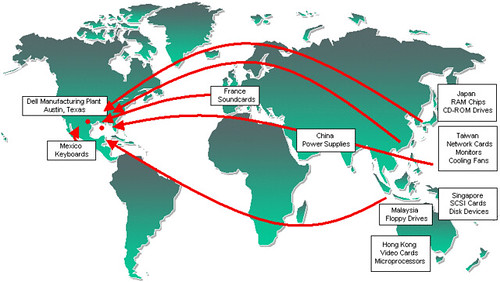
Friedman wrote his book on a Dell notebook. On an average day Dell sells 150,000 computers. As part of his research he asked Dell to trace the entire global supply chain that produced his notebook.
The answer to that question takes several pages and names lots of countries and companies.
To be a country which is part of such global supply chain is a powerful incentive not to go to war.
Friedman cites two instances in support of his Dell theory: India-Pakistan in 2002 (even though only India is part of the global supply chain) and China-Taiwan in 2004. In the book he gives quite a lot of supportive detail here.
Friedman is not talking in absolutes (war is still possible) but he argues that economic globalisation is acting as a powerful deterrent to war in those countries that are part of the global supply chain. The risks and consequences of being identified as an unstable country and having investment dollars withdrawn and businesses relocated are high.
Which countries are not part of the global supply chain: Iraq, Syria, South Lebanon, North Korea, Pakistan, Afghanistan and Iran.
Friedman then goes on to describe mutant global supply chains, with the al-Quaeda network in mind. He describes how al-Quaeda uses globalisation, the Internet, global media in a way to promote their cause. The jihadist identity has been globalised (jihadists in Iraq identify with the Bali bombing) and so have feelings of humiliation that the Muslim world is not doing as well as other worlds - Hindus, Jews, Christians, Chinese
He then draws a parallel between the global supply chain of manufactured goods in the West with a global supply chain of suicide bombers organised by al-Quaeda:

Friedman wrote his book on a Dell notebook. On an average day Dell sells 150,000 computers. As part of his research he asked Dell to trace the entire global supply chain that produced his notebook.
The answer to that question takes several pages and names lots of countries and companies.
To be a country which is part of such global supply chain is a powerful incentive not to go to war.
Friedman cites two instances in support of his Dell theory: India-Pakistan in 2002 (even though only India is part of the global supply chain) and China-Taiwan in 2004. In the book he gives quite a lot of supportive detail here.
Friedman is not talking in absolutes (war is still possible) but he argues that economic globalisation is acting as a powerful deterrent to war in those countries that are part of the global supply chain. The risks and consequences of being identified as an unstable country and having investment dollars withdrawn and businesses relocated are high.
Which countries are not part of the global supply chain: Iraq, Syria, South Lebanon, North Korea, Pakistan, Afghanistan and Iran.
Friedman then goes on to describe mutant global supply chains, with the al-Quaeda network in mind. He describes how al-Quaeda uses globalisation, the Internet, global media in a way to promote their cause. The jihadist identity has been globalised (jihadists in Iraq identify with the Bali bombing) and so have feelings of humiliation that the Muslim world is not doing as well as other worlds - Hindus, Jews, Christians, Chinese
He then draws a parallel between the global supply chain of manufactured goods in the West with a global supply chain of suicide bombers organised by al-Quaeda:
Just as you take an item off the shelf in a discount store in Birmingham and another one is immediately make in Beijing, so the retailers of suicide deploy a human bomber in Baghdad and another one is immediately recruited and indocrinated in BeirutGlobalisation is an irreversible and positive trend. We can't stop al-Quaeda using the internet and their terrorist beheading video tapes. The only answer is to modernise those countries that are not yet part of the global supply chain, that is, to drain the swamp that breeds terrorism.
my new game: Africa

Last week I won a 0.2 teaching position at my school in working with new arrivals (mainly from Africa) in improving their ICT skills. This is in addition to my other roles of teaching year 11, 10 and 9 computing and Chess. So essentially I am back on a full load of five lines, although nominally 0.8, because Chess is off line without a full subject teaching load status, even though I am offering it as a SACE Unit (South Australian edu-speak jargon)
This semester my Year 11 course is about Game Design and Making and after a term of skill building we are just starting the design and make your own game part of the course.
So, I thought I'd combine my new role and my established programme by designing and making an educational game about Africa!
In this way I could both improve my knowledge of the countries and conditions my African students originate from as well as modelling for my year 11s the process of designing and making a game myself.
Since I have asked my year 11s to work in groups then I should try to do the group thing myself. I'm thinking that I should setup a wiki and invite others to contribute ideas towards this African game project. I'm currently uncertain about which wiki to use so am seeking advice about that.
Here are my current answers (they will certainly change) to the same four questions that I've asked my year 11s.
Name of your game?
- Curious about Africa?
- Ubuntu, the game ("humanity to others", "I am what I am because of who we all are")
- basic geography and demography facts
- the humanitarian situation, some details
- the politics of Africa
- show and tell followed by quiz for basics (behaviourist / instructionist)
- build Africa from a jigsaw (constructionist)
- shame file (the UN does not look good)
- I have not thought hard about the game play yet
First up I will check that two African students in my Year 10 homegroup like what I am making
Friday, April 14, 2006
design and build your own game
I have asked my Year 11's to design and build their own game, using Game Maker.
I have asked them to do an educational game.
Maybe I should have asked for a "social impact" game (entertaining games with non-entertainment goals, aka serious games)?
Their game must have a real audience.
They are allowed to work in teams
I have nine groups, you can see visit their blogs via my blogroll on my gamedesign11 class blog. The blogs which start with 02_ are currently active. (the ones underneath are from Term one)
Writing will continue.
Initially I have said blogging, with an encouragement for group blogs. But now I am thinking that wikis are the natural way to go for group work. So I need to research that a bit more.
I have told my student to answer these questions before anything else:
I have asked them to do an educational game.
Your theme can be school education like maths, history, English etc. or out of school education like netball rules, football rules, the road rules, etc. Your game has to be designed to teach someone else (eg. a Year 8 student) something. You decide what that something isMy reason for this was to try to put them in a situation where they are not building a clone of a game they know, to try to encourage a bit of creativity in design. I'm looking out for other better ideas to improve my course design in this respect. How to facilitate creative design?
Maybe I should have asked for a "social impact" game (entertaining games with non-entertainment goals, aka serious games)?
Their game must have a real audience.
As you go along building your game, as part of the evaluation you are expected to get at least one person from outside of the class to play your game and then to fill out an evaluation sheet which rates your game for both learning and interest. So be clear about what you are teaching and who your target learning person isHaving a real target, which can be just one person, can make a huge difference I think, in getting down to the nitty gritty of designing something to teach someone, not just something in the abstract
They are allowed to work in teams
You are allowed to work in a team of two three or four, or as an individual. If you are in a team make sure that each member has clearly defined tasks so that everyone can keep busy. Game Maker does allow for merging of games so it is possible for team members to work on different aspects of building the game simultaneouslySo I have finally bitten the bullet on teamwork. Everyone agrees that it's very important but hard to assess.
I have nine groups, you can see visit their blogs via my blogroll on my gamedesign11 class blog. The blogs which start with 02_ are currently active. (the ones underneath are from Term one)
Writing will continue.
Initially I have said blogging, with an encouragement for group blogs. But now I am thinking that wikis are the natural way to go for group work. So I need to research that a bit more.
I have told my student to answer these questions before anything else:
- Name of your game?
- What are you going to teach? Provide details.
- How are you going to teach it? Details.
- Who is your target audience? Identify at least one real person.
ACEC Cairns, October 1-4, 2006
If all goes well, I will be involved in three sessions at the Australian Computers in Education Conference, Cairns, October 1-4, 2006.
1) A preconference workshop (Sunday, 1st October) aimed at people who are already teaching games programming - the focus is on pedagogy - how do we teach kids, not so much the software that is being used. A workshop to share ideas and strategies, boots and all, perhaps using the audience to share ideas on difficult kids. This is as part of the Australian School Innovation in Science, Technology and Mathematics (ASISTM) Game Making cluster of which I am a member.
2) Games in Learning Symposium (Bill Kerr, Tony Forster, Mark Piper)
This Symposium is structured to discuss the interplay between learning theory and games in learning.
Many and varied voices have come forward recently advocating the use of computer games in learning ...
There are still divisions between those who see games as good educationally and those who see them as bad or dangerous educationally (violent, addictive, another fad, edu-tainment)
There are also inertial (established curricula) and bureaucratic blocks (eg. filtering systems) in place making it hard for some teachers to implement games in education
There are also divisions amongst those who support games in education about the best way to go
Richard Van Eck has advance three possible ways in which games might be introduced into the curriculum:
Bill Kerr and Tony Forster favour the first approach, students building games from scratch. Mark Piper favours the third approach, integration of COTS games into the curriculum.
3) Teaching game making, facilitated by blogging (non refereed paper)
Teaching game making was combined with student blogging for a Year 11 class. Students were required to solve game making programming challenges and then document their solutions in their blogs. This opened a new channel of communication in the class which facilitated learning.
Mid semester progress report here
1) A preconference workshop (Sunday, 1st October) aimed at people who are already teaching games programming - the focus is on pedagogy - how do we teach kids, not so much the software that is being used. A workshop to share ideas and strategies, boots and all, perhaps using the audience to share ideas on difficult kids. This is as part of the Australian School Innovation in Science, Technology and Mathematics (ASISTM) Game Making cluster of which I am a member.
2) Games in Learning Symposium (Bill Kerr, Tony Forster, Mark Piper)
This Symposium is structured to discuss the interplay between learning theory and games in learning.
Many and varied voices have come forward recently advocating the use of computer games in learning ...
There are still divisions between those who see games as good educationally and those who see them as bad or dangerous educationally (violent, addictive, another fad, edu-tainment)
There are also inertial (established curricula) and bureaucratic blocks (eg. filtering systems) in place making it hard for some teachers to implement games in education
There are also divisions amongst those who support games in education about the best way to go
Richard Van Eck has advance three possible ways in which games might be introduced into the curriculum:
- have students build games from scratch;
- have educators and/or developers build educational games from scratch to teach students;
- integrate commercial off-the-shelf (COTS) games into the classroom
Bill Kerr and Tony Forster favour the first approach, students building games from scratch. Mark Piper favours the third approach, integration of COTS games into the curriculum.
3) Teaching game making, facilitated by blogging (non refereed paper)
Teaching game making was combined with student blogging for a Year 11 class. Students were required to solve game making programming challenges and then document their solutions in their blogs. This opened a new channel of communication in the class which facilitated learning.
Mid semester progress report here
the internet archive
It makes sense to store your files where they will be safe for a long time.
That place might be the internet archive with its goal of, "Universal Access to all Knowledge"
The Internet Archive stores under the following category headings: Web (includes The Wayback Machine), Moving Images, Texts (including books), Audio, Software and Education.
The founder is Brewster Kahle (scroll down, the bios are in alphabetical order).
It is possible to upload directly a movie, audio or book - see here and here
I went to the software archive because I want to upload some games made with Game Maker. It says there that to contribute you need to write to them directly, so I have done that.
That place might be the internet archive with its goal of, "Universal Access to all Knowledge"
The Internet Archive stores under the following category headings: Web (includes The Wayback Machine), Moving Images, Texts (including books), Audio, Software and Education.
The founder is Brewster Kahle (scroll down, the bios are in alphabetical order).
LR: Let's talk a little bit about your philosophy now. Could you discuss what you mean when you talk about "Universal Access To All Human Knowledge?"Creative Commons has developed a software tool, ccPublisher, which allows you to upload audio and video files to the Internet Archive after tagging them with information about your Creative Commons License.
BK: "Universal Access To All Human Knowledge" is a motto of Raj Reddy from Carnegie Mellon. I found that if you really actually come to understand that statement, then that statement is possible; technologically possible to take, say, all published materials -- all books, music, video, software, web sites -- that it's actually possible to have universal access to all of that. Some for a fee, and some for free. I found that was a life-changing event for me. That is just an inspiring goal. It's the dream of the Greeks, which they embodied, with the Egyptians, in the Library of Alexandria. The idea of having all knowledge accessible...
... I have a philosophy of what future I want to live in, which is probably more of a social and cultural issue than it really is a technological issue. And socially and culturally, what I want to grow up in -- and have my kids grow up in -- is a wonderful flowering of all sorts of really wild ideas coming from all sorts of people doing diverse and interesting things.
What I'd really like to see is a world where there's no limitations on getting your creative ideas out there. That people have a platform to find their natural audience. Whether their natural audience is one person, themselves, or a hundred people, or a thousand people. Try to make it so the technologies that we develop, and the institutions we develop, make it so that people have an opportunity to flower. To live a satisfying life by providing things to others that they appreciate.
http://www.openp2p.com/pub/a/p2p/2004/01/22/kahle.html
It is possible to upload directly a movie, audio or book - see here and here
I went to the software archive because I want to upload some games made with Game Maker. It says there that to contribute you need to write to them directly, so I have done that.
Sunday, April 09, 2006
turn off the radio
What is the significance of podcasting?
The slightly hyped optimistic view from Doc Searls:
I've been looking around for some theorising about podcasting and its significance in the scheme of things. Some comments by Clarence Fisher at Remote Access were helpful:
and also,
Patrick's comments seemed to tie in with Clarence's view that blogging is conceptually more significant than podcasting.
Clarence has a consistent theme running through his blog that we are moving into a new world, where networking assumes far greater importance. I liked the way in which he explored this theme. Of course, podcasting is important from this perspective so that creates some counter balance.
At this stage, the bottom line for me is this: Blogs are machine searchable, podcasts are not. From my understanding of XML/RSS this makes a huge difference.
I'm particularly interested in other views on this one.
UPDATE:(10th April)
I'm wrong!! Podcasts are machine searchable. Here are links to podscope and podzinger, which do just that. Thanks to Peter Allen and Sean FitzGerald for putting me right about that.
I'm suitably astonished but also delighted that things are moving so fast
From the podzinger About page there is a link to BBN which explains the technology
The slightly hyped optimistic view from Doc Searls:
PODcasting will shift much of our time away from an old medium where we wait for what we might want to hear to a new medium where we choose what we want to hear, when we want to hear it, and how we want to give everybody else the option to listen to it as well.POD = Personal Option Digital, or, Personal On Demand
- Doc Searls, DIY radio with PODcasting
I've been looking around for some theorising about podcasting and its significance in the scheme of things. Some comments by Clarence Fisher at Remote Access were helpful:
Have they learned in this time what podcasting is all about? Should we be continuing, or should we move on? This is always the question that teachers are asking themselves, but in many ways, it comes directly back to what we believe educational spaces are for, and about the value of what happens in our classrooms.I also found another discussion, what is real podcasting, which presents a sort of podcasting manifesto, a comparison with traditional radio, which includes points such as:
When we move on, when we leave a project or a concept behind, we do so because we believe that kids have mastered, to the greatest degree possible, whatever it is that we are wanting to teach them. We can't obviously do everything at one time so we need to move through content using multiple forms of representation, allowing kids time and effort to acquire the expertise of showcasing their knowledge and understanding in various ways.
So how does blogging and podcasting fit into this idea? Blogging truly doesn't. Blogs are a reflective space where kids work through their knowledge in ways that are almost always formative. Blogs are spaces where kids write, think, re - write, and re - think. Their ideas are undergoing constant redevelopment in this space and as educators, our role is to support and empower their understanding, and their (hopefully), increasingly deepened understanding of what they are doing. Without this growth, blogs simply turn into online journals. So blogging is not a space or a form of representation that can ever be mastered. A students can never reap all of the benefits possible from blogging. The next post may always bring new insight from someone you have never heard from before. Blogging needs to be an always ongoing process.
Podcasts are different. First of all, podcasting is not about the conversation like blogging is. Certainly we see instances of a podcast starting a debate, other people chiming in with their opinions either on blogs or on podcasts of their own, and the debate continuing; but podcasts, like we are recording them anyway, are a stand - along work. My students have made podcasts on entertainment, book reviews, the latest movies, health and exercise, etc. These pieces can certainly be listened to and commented on both for audio quality and for the quality of the recorded content, but they are far less a conversation then our blogs are.
- is personal - the podcaster talk about his personal life, feelings, emotions, expression of one's mind***But when I read the critical comments at the end of this blog, they had more weight to me than the "manifesto" itself, particularly the comment from Patrick who said:
- with spontaneity*
- improvise, explore the unknown which is of course what brings in innovation*
- portable*
- available in any time and space*
- free*
- directly connected to the web*
- organic and alive, can start or stop at any time*
"what can you embed in a podcast? chapter markers, images? Links? Could you have live links when someone says something?"
and also,
"... because radio is an audio-based linear-time medium, the conventions that exist in current 'traditional' radio are there like the conventions of typography, and the medium (lead type vs. laser printer) didn't really change the basic rules"
Patrick's comments seemed to tie in with Clarence's view that blogging is conceptually more significant than podcasting.
Clarence has a consistent theme running through his blog that we are moving into a new world, where networking assumes far greater importance. I liked the way in which he explored this theme. Of course, podcasting is important from this perspective so that creates some counter balance.
At this stage, the bottom line for me is this: Blogs are machine searchable, podcasts are not. From my understanding of XML/RSS this makes a huge difference.
I'm particularly interested in other views on this one.
UPDATE:(10th April)
I'm wrong!! Podcasts are machine searchable. Here are links to podscope and podzinger, which do just that. Thanks to Peter Allen and Sean FitzGerald for putting me right about that.
I'm suitably astonished but also delighted that things are moving so fast
From the podzinger About page there is a link to BBN which explains the technology
i, robot: good robot or bad robot?
"I, robot" (originally from Asimov) means the robot has acquired consciousness.
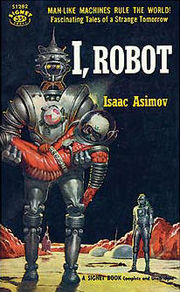
This is what a Cory Doctorow robot (2005) does:
This is how an Isaac Asimov robot (1942) is expected to behave:
Cory Doctorow wrote his version of I, Robot as a challenge to Isaac Asimov's Three Laws of Robotics, which he describes as "totalitarian assumptions underpinning some of sf's classic narratives" (see footnote to previous URL)
I'm for Cory. Why should we conceptualise future robots as inferior to humans and requiring a special set of laws to keep them in a subservient position. The more likely outcome in the future is that robots (thinking machines) will become superior to humans in all respects (smarter and faster). It is also likely that co-evolution will occur: part human, part robot.
Always being nice in a menial sort of way comes across as phoney and uninteresting, as is also depicted in Cory's short story:

This is what a Cory Doctorow robot (2005) does:
Benny (a robot) tossed the Social Harmony man across the room into the corner of a desk. He bounced off it and crashed to the floor, unconscious or dead.
- I, Robot by Cory Doctorow
This is how an Isaac Asimov robot (1942) is expected to behave:
1. A robot may not harm a human being, or, through inaction, allow a human being to come to harm.
2. A robot must obey the orders given to it by human beings, except where such orders would conflict with the First Law.
3. A robot must protect its own existence, as long as such protection does not conflict with the First or Second Law.
- Isaac Asimov's Three Laws of Robotics
Cory Doctorow wrote his version of I, Robot as a challenge to Isaac Asimov's Three Laws of Robotics, which he describes as "totalitarian assumptions underpinning some of sf's classic narratives" (see footnote to previous URL)
I'm for Cory. Why should we conceptualise future robots as inferior to humans and requiring a special set of laws to keep them in a subservient position. The more likely outcome in the future is that robots (thinking machines) will become superior to humans in all respects (smarter and faster). It is also likely that co-evolution will occur: part human, part robot.
Always being nice in a menial sort of way comes across as phoney and uninteresting, as is also depicted in Cory's short story:
"Acknowledged. It is my pleasure to do you a service, Detective"To think that humans will always be superior or even want to be talked to like this is a totalitarian assumption. What Cory has done is challenge that assumption through a short SF story.
Friday, April 07, 2006
cory doctorow is visiting australia to speak
I have bought tickets to Cory's Melbourne talk. He is also speaking in Brisbane and Sydney. His topic is the future of films in the digital age.
Cory Doctorow is a DRM activist, EFF activist, SF writer and co-editor of boing-boing, one the world's most popular blogs.
On the EFF:
On DRM, see here for full text of his talk to Microsoft's Research Group (sic) about DRM. From the introduction:
About his SF. This wikipedia entry has an outline of some of his books and there are some quotes from some of them at this wikiquotes site. Cory distributes his books for free on the internet at the same time they are released for sale in bookshops. This works to increase his sales. He has also utilised the Creative Commons license which allows people in developing countries to republish his books commercially there.
You can read one of his short stories, I Robot, here.
Thanks to Rose for the pointer at TALO.
Cory Doctorow is a DRM activist, EFF activist, SF writer and co-editor of boing-boing, one the world's most popular blogs.
On the EFF:
EFF has a problem: we work on issues before anyone knows that they matter. In 2002, we were at the inaugural meeting on the Broadcast Flag, and we spent the next two years explaining to everyone we could find what this stuff was and why it mattered. We published on the risks of Trusted Computing before anyone had a clue that this isn't just a security technology: it's a system for gutting competition in the market and user choice and privacy by subjecting computers to control by remote parties. We're at the Broadcast Treaty meetings at the UN, trying to get the big IT companies to understand that if its provisions come to pass, they'll need permission from the entertainment companies to launch new services like Google Video and new devices like the Video iPod. We've been sounding the alarm over the Analog Hole, over paperless electronic voting machines, over DRM, since the earliest days.
On DRM, see here for full text of his talk to Microsoft's Research Group (sic) about DRM. From the introduction:
I'm not a lawyer -- I'm a kind of mouthpiece/activist type, though occasionally they shave me and stuff me into my Bar Mitzvah suit and send me to a standards body or the UN to stir up trouble. I spend about three weeks a month on the road doing completely weird stuff like going to Microsoft to talk about DRM.
About his SF. This wikipedia entry has an outline of some of his books and there are some quotes from some of them at this wikiquotes site. Cory distributes his books for free on the internet at the same time they are released for sale in bookshops. This works to increase his sales. He has also utilised the Creative Commons license which allows people in developing countries to republish his books commercially there.
You can read one of his short stories, I Robot, here.
Thanks to Rose for the pointer at TALO.
Thursday, April 06, 2006
first person shooter
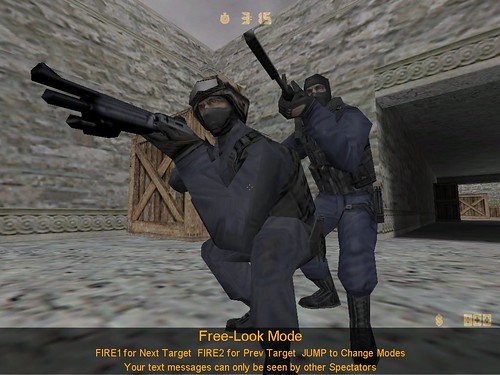
"KILL, KILL ... it's fun to kill"
What do you do if your son becomes addicted to a violent video game?
Robin Benger used the opportunity to make a video. And it's great. This guy is a dazzling writer, who comes out with a wonderful phrase more than once.
His son, Griffin, became addicted to CounterStrike. This is the story of the conflict within the family.
But because Dad, at one stage, decided to feed the addiction it is also a story about a CounterStrike tournament, his son's the Clan - Down Town Games, interviews with unconvincing games industry spokesperson (Doug Lowenestein), equally unconvincing moral crusaders and various reflections about Rating Systems, a 2000 yo debate, the generation gap and more.
Tracking down his son in the middle of the night to a games parlour, " ... an electronic hook soothed by the balm of bloodless killing ... I'm near him now, he doesn't even know I'm here" .. cut to beautiful and tragic music from an opera
"War is a game ... happiness is a digital bomb"
This debate is 2000 years old. Aristotle and Plato debated whether to ban Homer.
Aristotle: violence purges the emotions, produced catharsis.
Plato: Violent images provoke violent behaviour.
Lt. Col David Grossman, who blames computer games for one of those horrible school yard massacres, that occurred in his hometown. He tours America giving lectures about this.
Rhetorical question: "Why are video games violent"
Answer: "Because violence is the addictive substance".
However, it turns out that Grossman could not name the video game that the young killer was playing. Benger then went to the trouble of finding a psychiatrist who had interviewed the killer who contradicted Grossman's interpretation.
The inventor of CounterStrike, 23 yo Minh Lee, fled the Vietnam war zone in a boat when 2 yo to end up in America making a game about violence and mayhem. He has a picture of a baby harp seal on his wall. Nice twist. In response to a question he says: "If people can't control themselves, then it's really not my responsibility"
Interviews with various parents who's sons are "hooked":
Interview one:
I turned off his computer. He grabbed my arm. Gave me a look as though he wished me dead. Threw the coffee table across the room. (nearly in tears)
Interview two:
Woman with 2 dogs on the couch. One of their sons had a seizure when playing a war game.
Interview three (Benger's wife):
Whenever Griffin was faced with anything difficult he would turn to the video game as an escape from the difficulty.
Interview four:
Video games are keeping him away from truly dangerous stuff like drugs and alcohol.
Back to Bengers' voice over:
"... the nagging overscheduled world of the urban child"
"my youth has no relevance to his ..."
"I lost the battle to keep the dark side of the information age out of my home"
"Not one of us knows what effect these games are having on the minds that shape the 21st Century"
Some melodrama here, yes, but gripping viewing too. I highly recommend this video and use it in my games course.
space and time on the web
Thanks to Roland, I was asked recently by Andrew Tierney to write a piece for Infonet, the VITTA Journal (Victoria). I've sent him the following which is a review of Chapers 2 and 3 of David Weinberger's Small Pieces Loosely Joined. If there are any cartoonists or artists reading this then I'd love to be able to talk to you about a drawing a graphic which represents the space and time of the net, eg. see the paragraph about "... rooms with magic doors"
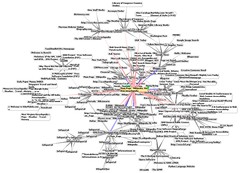
The Web changes our perception of Space and hence changes our perception of what it means to a human living in space.
Real world space has the hard edges of fixed dimensions. It is a pre-existing container of fixed size that we are stuck with as part of reality. Geography can be and often is a restrictive tyranny. Australia has been described by historians (Blainey) as the tyranny of distance.
Web space, by contrast is entirely created by humans. It's not a fixed space, it's an expanding space, Google is searching 8,058,044,651 web pages and returns results in a fraction of a second. That is almost miraculous :-)
Now we have blogs and sites that search and categorise blogs. Check out technorati, bloglines etc. It grows. And as it gets bigger your ability to find your way around has perhaps surprisingly increased. Search has dramatically improved. It's now far easier to find and conveniently reference quality information on the Web.
Imagine a place with billions of rooms with magic doors that are psychically linked to other rooms by the interests of the people travelling from room to room. Your nearness to other rooms is created by your level of interest. Is that magic or is that the Web?
When you visit a web site do you feel that the web site is travelling to you or that you are travelling through space to the web site? Even though the web page is being downloaded to my computer my subjective feeling is that I'm travelling somewhere else to that web page. The Web has the feel of place about it, it is place-ial, so it feels spatial
Real world time is an irreversible, relentless river, once it has passed we cannot retrieve it.
This is old knowledge, the Greek philosopher Heraclitus said, "You can't step into the same river twice"
In the real world not only is there a tyranny of distance there is also a tyranny of the NOW. We always operate in the present and if we stuff badly then there is sometimes no going back.
Weinberger uses the metaphor of a beaded necklace passing over a blade, remorselessly, one bead at a time.
But time on the web is more like a hand writing than a necklace being pulled across a blade. On the Web there are many branching threads of conversation which extend backwards and forwards in time. The threads are often unfinished, the conversation can continue at any time convenient to the participants.
In the real world time and space are divided into uniform units. On the Web the feel of time and space is much more elastic.

The Web changes our perception of Space and hence changes our perception of what it means to a human living in space.
Real world space has the hard edges of fixed dimensions. It is a pre-existing container of fixed size that we are stuck with as part of reality. Geography can be and often is a restrictive tyranny. Australia has been described by historians (Blainey) as the tyranny of distance.
Web space, by contrast is entirely created by humans. It's not a fixed space, it's an expanding space, Google is searching 8,058,044,651 web pages and returns results in a fraction of a second. That is almost miraculous :-)
Now we have blogs and sites that search and categorise blogs. Check out technorati, bloglines etc. It grows. And as it gets bigger your ability to find your way around has perhaps surprisingly increased. Search has dramatically improved. It's now far easier to find and conveniently reference quality information on the Web.
Imagine a place with billions of rooms with magic doors that are psychically linked to other rooms by the interests of the people travelling from room to room. Your nearness to other rooms is created by your level of interest. Is that magic or is that the Web?
When you visit a web site do you feel that the web site is travelling to you or that you are travelling through space to the web site? Even though the web page is being downloaded to my computer my subjective feeling is that I'm travelling somewhere else to that web page. The Web has the feel of place about it, it is place-ial, so it feels spatial
In the final analysis, we seem to have a choice of metaphors that are equally suited to the task. We could think of the Web as a giant photocopier that delivers copies of sites. We could think of it as a medium through which we see sites. We could think of it as a library from which we request copies. But we don't. We experience the Web as a web: a set of nodes that are linked one to another, creating a space through which we travel. (40)
Real world time is an irreversible, relentless river, once it has passed we cannot retrieve it.
This is old knowledge, the Greek philosopher Heraclitus said, "You can't step into the same river twice"
In the real world not only is there a tyranny of distance there is also a tyranny of the NOW. We always operate in the present and if we stuff badly then there is sometimes no going back.
Weinberger uses the metaphor of a beaded necklace passing over a blade, remorselessly, one bead at a time.
But time on the web is more like a hand writing than a necklace being pulled across a blade. On the Web there are many branching threads of conversation which extend backwards and forwards in time. The threads are often unfinished, the conversation can continue at any time convenient to the participants.
In the real world time and space are divided into uniform units. On the Web the feel of time and space is much more elastic.
It is not an accident that the Web is distracting. It is the Web's hyperlinked nature to pull our attention here and there. But it is not at all clear that our new distractedness represents a weakening of our culture's intellectual powers, a lack of focus, a diversion from the important work that needs to be done, a disruption of our very important schedule. Distraction may instead represent our interests finally finding the type of time that suits us best…. Our experience of time on the Web, its ungluing and regluing of threads, may be less an artefact of the Web than the Web's enabling our interest to find its own rhythm. Perhaps the Web isn't shortening our attention span. Perhaps the world is just getting more interesting. (69)
Sunday, April 02, 2006
quadratics instruction
I received this letter recently about an article and program I wrote in logo 10 years ago for teaching quadratics. The program still runs on a modern XP Windows although the interface looks very old fashioned today. One possibility would be to rewrite it for an open source version of logo such as George Mills and Brian Harvey's MSWlogo.
I was reading your paper on quadratics software that you wrote, I am a masters student and I am doing my research on Computer Aided Instruction in quadratics. I would love to look at your software and maybe use it with my students that I am teaching. Are you willing to share your software? I of course would share my research results with you upon completion.I teach high school math (10th and 11th ) grade and I have a group of students that have not received quadratic instruction and are in need of a program to learn from. My school is South Kitsap High School the largest high school in the state of Washington in the US. We have 2600 students in three grades. We recently changed math programs and now there is a group of students that have not been educated on quadratics and I need to find a fast and effective means to fill that gap. Your program may be just the ticket.I look forward to hearing from you.
encouraging letter
I received this encouraging and interesting letter from Canada last week. The reflection about programming is interesting from the perspective of learning styles:
I am a young man of 23 years of age, and have just finished reading your article entitled "Something is making me do it" which I feel compelled to write to you about.
I first want to say how great I think it is of you to teach kids/teens about game making and basic programming skills. You definitely have the right attitude and are on to something.
I myself am struggling with Game Maker, trying to learn how to make it do my deeds, with the larger goal of building interactive games of fine craftmanship. I do not consider myself a programmer, I really despise computer programming, but my creative urges are pushing me to overcome this feeling. I consider myself more of a artist/designer.
So, for me, it really is a matter of:
Creative work (right side of the brain) v.s. Logical work (left side of the brain)
The exciting stuff is in thinking up the design, the game rules, the look, the gameplay.
The boring head-splitting part is actually implementing it. In particular, the logistics, the scripting.
I get sick of it quite easily, I'm still at a fairly early stage of development, and am trying to deal with it by tiny incrementals.
Friendly, image-rich tutorials help a lot, since I'm a visual kind of guy, and I try to introduce myself to the logical part slowly, piece by piece. I also try to psychologically separate creative tasks from logical tasks. So, when I'm coding, I leave all the excitement from the creation alone, and try to concentrate on the mathematical aspects. Separating the two helps a lot.
That's all I wanted to say
game making year 11 mid semester report
I have designed a one semester game making / multimedia course for Year 11 students. This is a report of progress so far this year. The full course can be found at http://users.tpg.com.au/billkerr/g/y11.htm
COURSE INGREDIENTS (partial)
The initial setting up of blogs did take some time but in the longer term it was time well spent.
Some students adapted quickly to both game making and blogging, others took several weeks to become productive and a few did not engage sufficiently in one or the other parts of the course.
The teachers marking scheme gave 5 marks for each game maker challenge. Students had to complete the challenge (they could ask anyone for help), blog about how they solved the problem (3 marks), about who helped them (1 mark) and include a screen shot of their solution (1 mark). The teacher kept an up to date open marks book which students could look at to monitor their progress at any time. Assigning percentages and grades two weeks before assessment period was a powerful motivator for some students who were behind to catchup.
Students could also get marks for off topic blogging (limited to one mark per week), writing how to tips about game maker, game maker problems and setting up their blog expertly (theme, blogroll, leaving comments on other blogs).
Writing about how a problem was solved does help to reinforce the learning process.
Quite a few students did read the blogs of more advanced students, who had detailed descriptions, for tips about how to solve problems. Pikmik and JRB01 were two favourites for this. (plan to do a survey about this)
The teacher setup an RSS feed at bloglines which collected all student blogs in one place and informed him when their blog had been updated. This was very convenient and make it possible for the teacher to give more regular feedback than in previous years. It was also possible for the teacher to obtain a more rounded picture of student interests through their off topic posts. This built rapport and lifted morale.
Some students obviously enjoyed leaving comments on each others blogs, this was seen as a fun activity.
COURSE RATIONALE
Why choose Game Maker as the programming language?
Game Maker has a free version (but not open source), has a great drag and drop interface, low entry and high ceiling programming capabilities, extensive support materials and a large, active community (Game Maker forum). Since the software is free it was included on a CD with other free and open source software which was made available for students to take home.
Game making challenges – the focus on challenges rather than demonstrations or tutorials
The initial part of the course consists of skill building in the use of Game Maker through solving a series of challenges that are accompanied by hints. By solving the challenges students learn some of the basic skills of game programming such as:
All of the challenges are available at this URL: http://users.tpg.com.au/billkerr/g/ch.htm
In general, I think challenges are more effective than either Demonstrations or Tutorials for teaching and learning. Why? Challenges involve both construction and struggle!
Challenges – student has to struggle for mastery, the teacher is a guide on the side providing hints or direct guidance occasionally.
Demonstrations – teacher shows how to do it, student is relatively passive at first, construction is optional.
Tutorials – Step by step instruction provided by teacher, student follows. This can be too passive, not enough exploration or struggle is required.
http://billkerr.blogspot.com/2005/07/tutorials-demos-challenges.html
I think you need the full range of tutorials, demonstrations (which are more show and tell) as well as the challenges / hints (explore, think, do, ask questions) but overall I'm trying to push my students towards the latter mode.
Why blogging?
As well as the curiosity and appeal of a new technology I was motivated by other reasons to incorporate blogging into the course.
Writing and documentation is an important part of programming (including comments within code) and improves the employability of a programmer. The method of writing every day is a good one because writing improves with regular practice.
The teacher ability to communicate with students is quite limited in a face to face setting with a class size of 20. Opening up another regular written communication channel vastly improves teacher-student communication. This can be used extensively for feedback and also enables students to share off topic thoughts with the teacher.
Once students have setup blogrolls of other students on their blogs then student-student communication increases as well. This can be used for both fun and learning.
COURSE INGREDIENTS (partial)
- game making – for motivation, engagement initially but also for worthwhile objects to think with
- blogging – for opening up new channels of communication in the classroom
- explicit instruction about programming, just in time approach
The initial setting up of blogs did take some time but in the longer term it was time well spent.
Some students adapted quickly to both game making and blogging, others took several weeks to become productive and a few did not engage sufficiently in one or the other parts of the course.
The teachers marking scheme gave 5 marks for each game maker challenge. Students had to complete the challenge (they could ask anyone for help), blog about how they solved the problem (3 marks), about who helped them (1 mark) and include a screen shot of their solution (1 mark). The teacher kept an up to date open marks book which students could look at to monitor their progress at any time. Assigning percentages and grades two weeks before assessment period was a powerful motivator for some students who were behind to catchup.
Students could also get marks for off topic blogging (limited to one mark per week), writing how to tips about game maker, game maker problems and setting up their blog expertly (theme, blogroll, leaving comments on other blogs).
Writing about how a problem was solved does help to reinforce the learning process.
Quite a few students did read the blogs of more advanced students, who had detailed descriptions, for tips about how to solve problems. Pikmik and JRB01 were two favourites for this. (plan to do a survey about this)
The teacher setup an RSS feed at bloglines which collected all student blogs in one place and informed him when their blog had been updated. This was very convenient and make it possible for the teacher to give more regular feedback than in previous years. It was also possible for the teacher to obtain a more rounded picture of student interests through their off topic posts. This built rapport and lifted morale.
Some students obviously enjoyed leaving comments on each others blogs, this was seen as a fun activity.
COURSE RATIONALE
Why choose Game Maker as the programming language?
Game Maker has a free version (but not open source), has a great drag and drop interface, low entry and high ceiling programming capabilities, extensive support materials and a large, active community (Game Maker forum). Since the software is free it was included on a CD with other free and open source software which was made available for students to take home.
Game making challenges – the focus on challenges rather than demonstrations or tutorials
The initial part of the course consists of skill building in the use of Game Maker through solving a series of challenges that are accompanied by hints. By solving the challenges students learn some of the basic skills of game programming such as:
- what Events mean (Create, Step, Alarm, Collision, etc.)
- how to link Events to Actions
- the coordinate system (x, y space) and direction
- how to use the random() function to vary motion
- how to make characters shoot and targets explode
- how to turn actions of temporarily using Boolean T/F variables and Alarm clocks
- how to make one character follow another character
- how to control game flow using conditionals
- how to draw text on the screen
- how to push things around a room
All of the challenges are available at this URL: http://users.tpg.com.au/billkerr/g/ch.htm
In general, I think challenges are more effective than either Demonstrations or Tutorials for teaching and learning. Why? Challenges involve both construction and struggle!
Challenges – student has to struggle for mastery, the teacher is a guide on the side providing hints or direct guidance occasionally.
Demonstrations – teacher shows how to do it, student is relatively passive at first, construction is optional.
Tutorials – Step by step instruction provided by teacher, student follows. This can be too passive, not enough exploration or struggle is required.
http://billkerr.blogspot.com/2005/07/tutorials-demos-challenges.html
I think you need the full range of tutorials, demonstrations (which are more show and tell) as well as the challenges / hints (explore, think, do, ask questions) but overall I'm trying to push my students towards the latter mode.
Why blogging?
As well as the curiosity and appeal of a new technology I was motivated by other reasons to incorporate blogging into the course.
Writing and documentation is an important part of programming (including comments within code) and improves the employability of a programmer. The method of writing every day is a good one because writing improves with regular practice.
The teacher ability to communicate with students is quite limited in a face to face setting with a class size of 20. Opening up another regular written communication channel vastly improves teacher-student communication. This can be used extensively for feedback and also enables students to share off topic thoughts with the teacher.
Once students have setup blogrolls of other students on their blogs then student-student communication increases as well. This can be used for both fun and learning.
Saturday, March 25, 2006
questioning research
I'm reading some research papers in preparation for a presentation I'm due to give at ACEC in Cairns later this year. This paper was recommended by Tony Forster.
Questioning the Questions of Instructional Technology Research
The author, Thomas Reeves, starts from the premise that when research is done using taxpayers money that the research students should be counselled / pressured into chosing topics that are more socially important than what motivates people to take SCUBA diving courses.
There are important social issues in the world - adult illiteracy, attacks on public education, "at-risk" students, homelessness, AIDS etc.
He goes onto argue that the goal of educational research must be to improve education not just to understand what is happening. Institutionalised Education is not a natural phenomenon, it is "man-made" so there is a need to make it better.
This is an old but still important argument, the distinction between knowing the world and changing the world. Marx critiqued Feurbach along those lines too:
He's tough on the issue of pseudo-science. He says that a lot of research is not up to scratch based on criteria. Figure 6 is the key link. The critique he is making of most educational research is along these lines:
This critique is frightening for our Game Making cluster IMO because most of us are not trained in such a rigorous research approach and are too busy, don't have the time / resources to read all the relevant literature, study up on statistics etc. We are practitioners who have dabbled in educational theory without reaching the rigorous standards demanded by Thomas Reeves.
However, his solution to this problem in a way lets us off the hook and steers around the above critique by suggesting a different sort of approach to educational research. He wants academics to work more closely with schools to strive to make a difference there, "where the real needs are so great." That the goal of educational research must be to make a difference, "in schools with real problems".
This is something members of our Game Maker cluster can relate to because that is what we are on about, that is our core business, and what brought us together in the first place. However, I don't really believe that we are off the hook entirely. What is our core theory? What literature have we read? Have we thought about those hard to measure variables? Statistics? We need to do some of this.
Reeves concludes with a summary of a couple of instances of developmental research that he does like.
One is Idit Harel's (1991) Instructional Software Design Project, which I have read and was so impressed by that I tried to emulate it a few years ago (yet to publish my paper on that).
The other is a study by Richard Lehrer(1993) where eighth graders used HyperAuthor to design their own lessons about the American Civil War. ... based on Perkins theory that "knowledge is a process of design and not something to be transmitted from teacher to students..." One interesting result of this study is that important differences were found a year later (but not immediately). The control group forget whereas the constructionist group remembered history as "a process of interpreting the past from different perspectives ..."
I agree with Reeves idea that theory is important and have been gradually reviewing my already established ideas about constructionism and thinking more about George Siemens new idea of connectivism. How do those theories relate to what I am doing with Game Making and blogging?
Reeves paper also influenced me in thinking about going beyond an empirical, quantitative approach and to make the effort to integrate the above theories with what I observe my students doing when they solve game problems and blog about that.
Questioning the Questions of Instructional Technology Research
The author, Thomas Reeves, starts from the premise that when research is done using taxpayers money that the research students should be counselled / pressured into chosing topics that are more socially important than what motivates people to take SCUBA diving courses.
There are important social issues in the world - adult illiteracy, attacks on public education, "at-risk" students, homelessness, AIDS etc.
He goes onto argue that the goal of educational research must be to improve education not just to understand what is happening. Institutionalised Education is not a natural phenomenon, it is "man-made" so there is a need to make it better.
This is an old but still important argument, the distinction between knowing the world and changing the world. Marx critiqued Feurbach along those lines too:
The philosophers have only interpreted the world, in various ways; the point is to change it.I agree with Thomas Reeves on this basic premise and he follows this thread through in a practical sort of way.
He's tough on the issue of pseudo-science. He says that a lot of research is not up to scratch based on criteria. Figure 6 is the key link. The critique he is making of most educational research is along these lines:
- lack of linkage to a robust theory
- inadequate literature review
- hard to measure variables are not measured reliably
- outcomes of research have little or no relevance for the subjects in the study
- statistical analysis is fudged
- rambling, often incoherent discussion of results
This critique is frightening for our Game Making cluster IMO because most of us are not trained in such a rigorous research approach and are too busy, don't have the time / resources to read all the relevant literature, study up on statistics etc. We are practitioners who have dabbled in educational theory without reaching the rigorous standards demanded by Thomas Reeves.
However, his solution to this problem in a way lets us off the hook and steers around the above critique by suggesting a different sort of approach to educational research. He wants academics to work more closely with schools to strive to make a difference there, "where the real needs are so great." That the goal of educational research must be to make a difference, "in schools with real problems".
This is something members of our Game Maker cluster can relate to because that is what we are on about, that is our core business, and what brought us together in the first place. However, I don't really believe that we are off the hook entirely. What is our core theory? What literature have we read? Have we thought about those hard to measure variables? Statistics? We need to do some of this.
Reeves concludes with a summary of a couple of instances of developmental research that he does like.
One is Idit Harel's (1991) Instructional Software Design Project, which I have read and was so impressed by that I tried to emulate it a few years ago (yet to publish my paper on that).
The other is a study by Richard Lehrer(1993) where eighth graders used HyperAuthor to design their own lessons about the American Civil War. ... based on Perkins theory that "knowledge is a process of design and not something to be transmitted from teacher to students..." One interesting result of this study is that important differences were found a year later (but not immediately). The control group forget whereas the constructionist group remembered history as "a process of interpreting the past from different perspectives ..."
I agree with Reeves idea that theory is important and have been gradually reviewing my already established ideas about constructionism and thinking more about George Siemens new idea of connectivism. How do those theories relate to what I am doing with Game Making and blogging?
Reeves paper also influenced me in thinking about going beyond an empirical, quantitative approach and to make the effort to integrate the above theories with what I observe my students doing when they solve game problems and blog about that.
Sunday, March 19, 2006
learning maths
Steve Yegge offers some advice about learning maths. He takes a programmers perspective but his article ranges beyond that perhaps. I might accept his advice and learn some more maths. Here are some extracts that I found particularly useful. The place to start would be his paragraph about using wikipedia. That is a really interesting idea and tremendous praise for wikipedia. I've taken the trouble to put in some links to wikipedia in my extract below.
The Math They Didn't Teach You
... most of the math you learn in grade school and high school is continuous: that is, math on the real numbers. For computer scientists, 95% or more of the interesting math is discrete: i.e., math on the integers...
For programmers, the most useful branch of discrete math is probability theory... How many ways are there to make a Full House in poker? Or a Royal Flush? Whenever you think of a question that starts with "how many ways..." or "what are the odds...", it's a probability question.
Other important maths topics for programmers ... Statistics, Algebra and Linear Algebra (i.e., matrices), Mathematical Logic
Information Theory and Kolmogorov Complexity ... Information theory is (veeery roughly) about data compression, and Kolmogorov Complexity is (also roughly) about algorithmic complexity. I.e., how small you can you make it, how long will it take, how elegant can the program or data structure be, things like that.
The Right Way To Learn Math
The right way to learn math is breadth-first, not depth-first ...
The right way to learn math is to ignore the actual algorithms and proofs, for the most part, and to start by learning a little bit about all the techniques: their names, what they're useful for, approximately how they're computed, how long they've been around, (sometimes) who invented them, what their limitations are, and what they're related to. Think of it as a Liberal Arts degree in mathematics.
Why? Because the first step to applying mathematics is problem identification ...
I think the best way to start learning math is to spend 15 to 30 minutes a day surfing in Wikipedia. It's filled with articles about thousands of little branches of mathematics. You start with pretty much any article that seems interesting (e.g. String theory, say, or the Fourier transform, or Tensors, anything that strikes your fancy. Start reading. If there's something you don't understand, click the link and read about it. Do this recursively until you get bored or tired.
Doing this will give you amazing perspective on mathematics, after a few months. You'll start seeing patterns — for instance, it seems that just about every branch of mathematics that involves a single variable has a more complicated multivariate version, and the multivariate version is almost always represented by matrices of linear equations. At least for applied math. So Linear Algebra will gradually bump its way up your list, until you feel compelled to learn how it actually works, and you'll download a PDF or buy a book, and you'll figure out enough to make you happy for a while.
With the Wikipedia approach, you'll also quickly find your way to the Foundations of Mathematics, the Rome to which all math roads lead. Math is almost always about formalizing our "common sense" about some domain, so that we can deduce and/or prove new things about that domain. Metamathematics is the fascinating study of what the limits are on math itself: the intrinsic capabilities of our formal models, proofs, axiomatic systems, and representations of rules, information, and computation.

